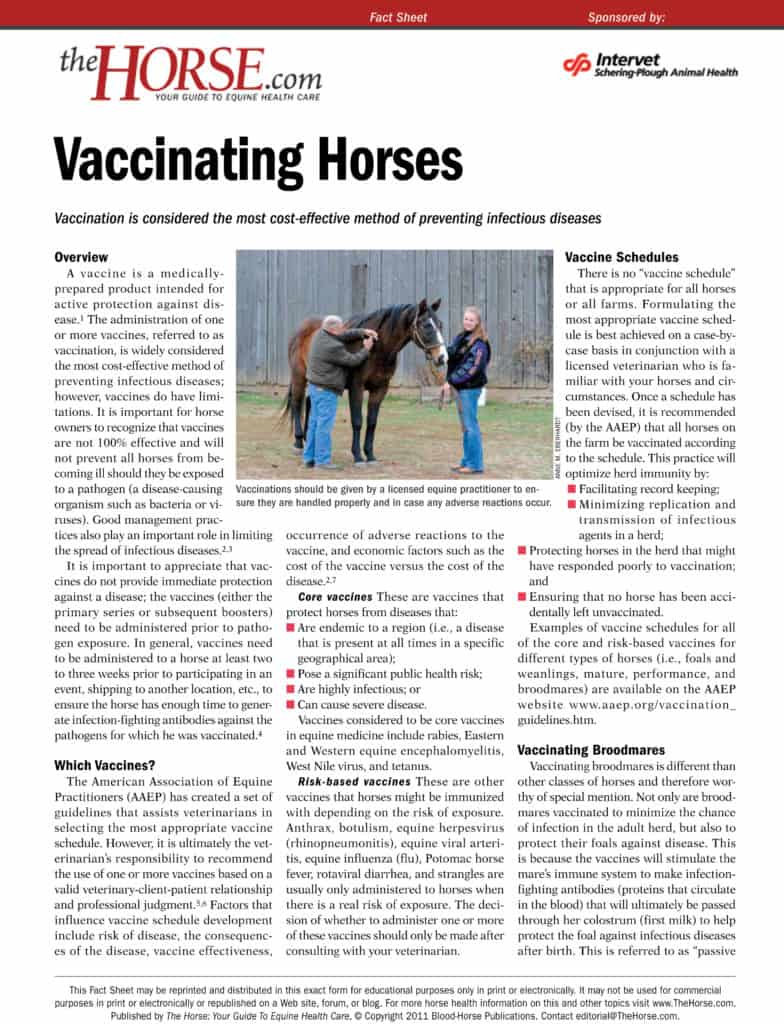Pain Management

In veterinary medicine, particularly equine practice, the recognition, classification, management, and overall importance of pain and pain management have only recently been described.
The Horse’s Digestive System

The horse’s digestive system is large, complex, and functions like a factory, yet it is exceedingly delicate. Digestive tract dysfunction in the horse is an important concern for owners and veterinarians.
Equine Lameness

Equine lameness, defined as a deviation from a normal gait, is an indicator of a structural or functional disorder of the musculoskeletal system (the limbs or spinal column) that is noted while the horse is either moving or stationary.
Strangles

Equine Strangles is a highly contagious and debilitating equine disease caused by the bacterium Streptococcus equi.
Ultrasonography for Horses

Equine practitioners use ultrasound machines to help diagnose a number of physical abnormalities.
Vaccinating Horses

Vaccinating horses is generally considered to be the most cost-effective method of preventing infectious diseases; however, vaccines do have limitations.
Composting

Efficiently managing manure is an important aspect of caring for horses. Composting is an economical and efficient method for managing manure for virtually any equine operation, regardless of size.
Cardiology: The Equine Heart

Cardiac disease is considered the third-most common cause of “poor performance” in athletic horses (after musculoskeletal disease and respiratory disorders).
Cloning Horses and Other Equids

Cloning is defined as the process of creating a genetically identical copy of another cell or organism (i.e., bacteria, plant or animal) through non-sexual means.
Equine Upper Airway

Understand the structure and function of the equine upper respiratory system to understand horses’ breathing.
Joint Structure and Function
A joint is defined as an anatomic union or junction between two or more bones. There are three basic types of joints in the horse: Synovial, fibrous, and cartilaginous.
Equine Joint Supplements

Equine joint supplements have been purported to decrease inflammation, increase mobility, and more. This guide to equine joint supplements includes a seven-step quality evaluation process and tips for choosing a safe and effective product.
General Equine Supplements

Supplements, or nutraceuticals, are thought to have some beneficial effects for horses, but more studies are necessary.
Feeding Geriatric Horses

Just because a horse is older does not mean he needs a special diet. However, many older horses with special physical or nutritional needs (geriatric horses) require specific diets and feed modifications to maintain good health and body condition.
Feeding Easy Keepers

The term “easy keepers” refers to horses and ponies that maintain or gain weight on a minimum amount of food.
Wound Care for Horses

Due to their inquisitive nature, a well-developed flight response, and that they are commonly confined in areas with potential obstacles such as metal or wire, horses tend to be accident prone, making wounds a fairly common occurrence.







